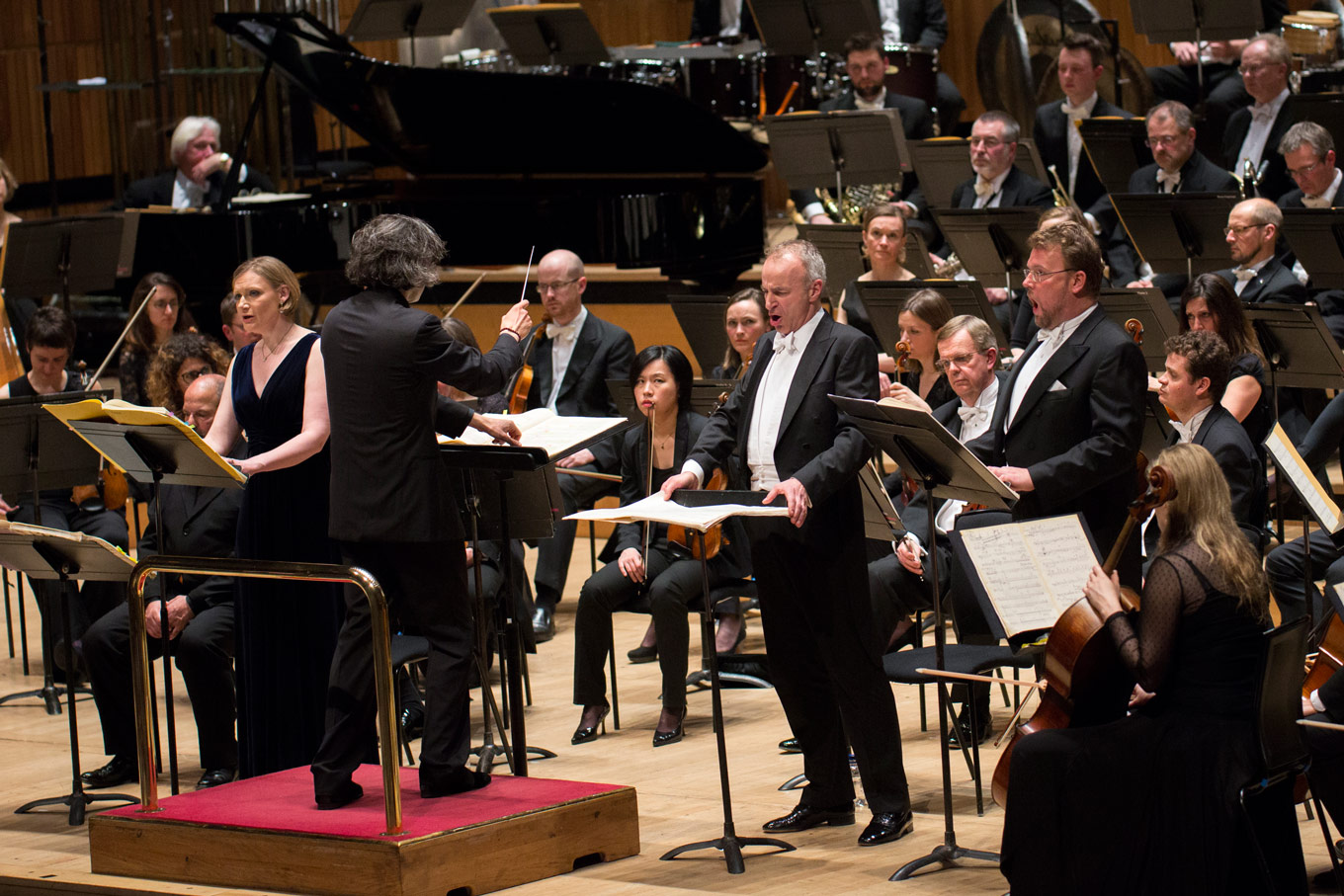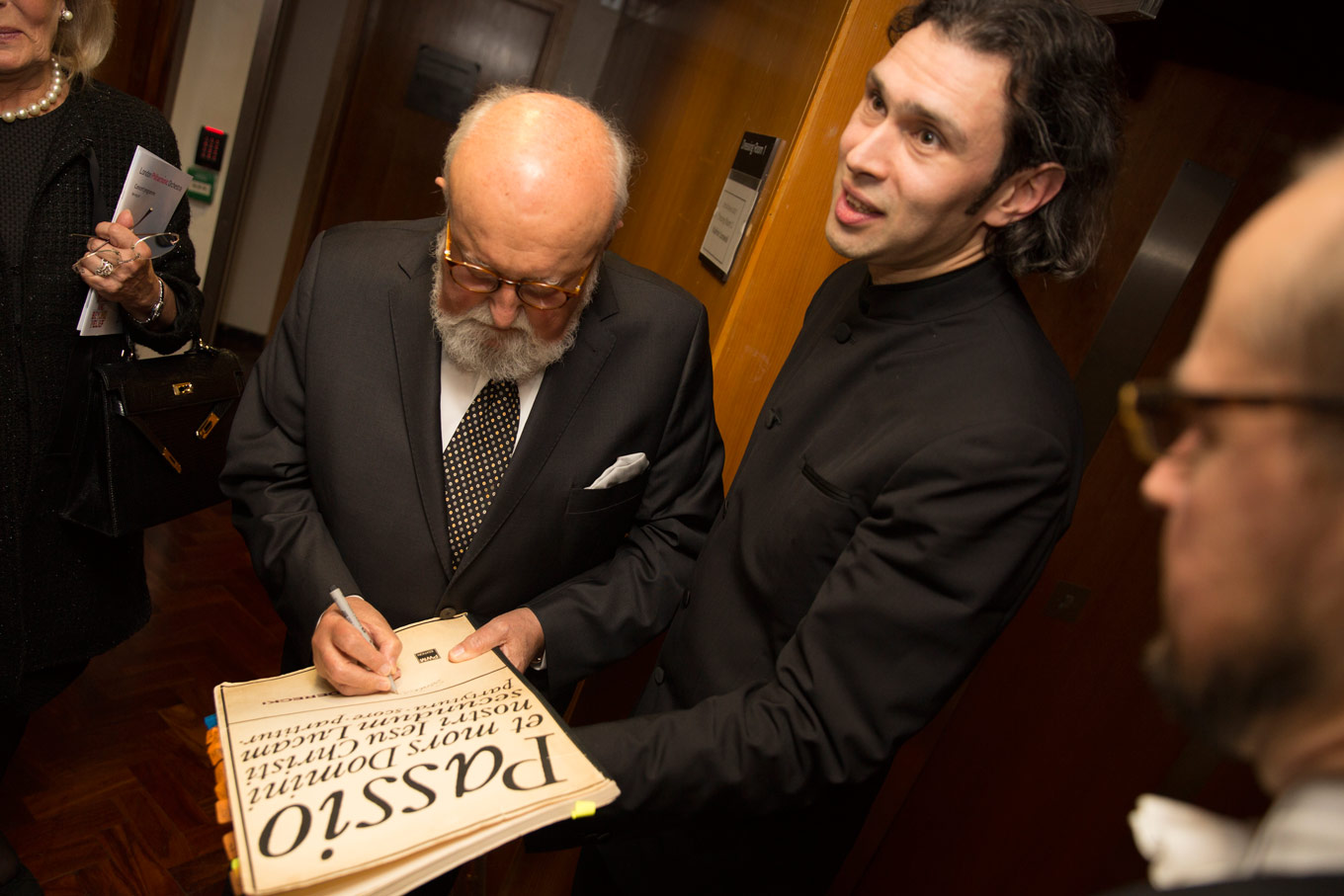
In review: LPO presents St. Luke Passion
Review“Passion season” kicks off early this year, as Saturday evening we were treated to a stunning performance of Krzysztof Penderecki’s St. Luke Passion.
The London Philharmonic Orchestra teamed up with the Polish Radio Choir, the Camerata Silesia Katowice City Singer’s Ensemble, and the Warsaw Boys Choir at the Fryderyk Chopin University of Music to deliver a truly powerful night at the Royal Festival Hall. First composed in 1966, the debut of St. Luke Passion was met with tremendous critical acclaim. Penderecki’s emotionally-driven atonal writing proves to be as effective now as it was fifty-one years ago.
The twenty-seven sections of this work feature text from the Gospel according to Luke, with various added psalms and Latin text interspersed throughout the narration of the passion, in order to heighten the story and bring the characters to life.

Towards the beginning of the work, the baritone portraying Jesus sings text from Psalm 21 (“My God, why have you forsaken me?”). We then get to see a transformation in the character of Jesus - baritone Dietrich Henschel seemed to first portray the bewilderment of Jesus, eventually calming down to a state of resignation while delivering his final words: “Et consummatum est.”
Who says that in order to sing a tone-row you must employ straight tone? All of the evening’s singers made serialism seem simple, and we were struck by the pitch accuracy achieved through supported singing with vibrato. Soprano Elizabeth Atherton drew us in with her captivating movements - in “Crux fidelis”, Artherton seemed to radiate the hope of redemption with her warm, legato sound. When bass-baritone Tomasz Konieczny became the role of Peter, his dark and resonant tone served Penderecki’s sigh motif perfectly, highlighting the remorse of this character before gracefully switching to a strong, yet hesitant Pilate. Omar Ebrahim confidently narrated the story throughout the piece, serving as the Evangelist. The aid of a microphone was at times distracting, pulling us out of the sound world of the piece towards a manufactured and amplified one.

The artful conducting of Vladimir Jurowski, who led all of the choirs and orchestra through this tremendously difficult score, made the intense emotional impact on the audience possible. Navigating pitch clusters and sound effects, the giant ensemble proved to be extremely moving, reflecting the suffering of humanity in the penultimate movement, “Alla breve”.
What struck us most about this performance was how clear these characters appeared to this modern audience. The passion is truly a timeless story, and to see these thousand-year-old characters come to life in an extremely relatable way is why we yearn to keep seeing passions performed.


Comments